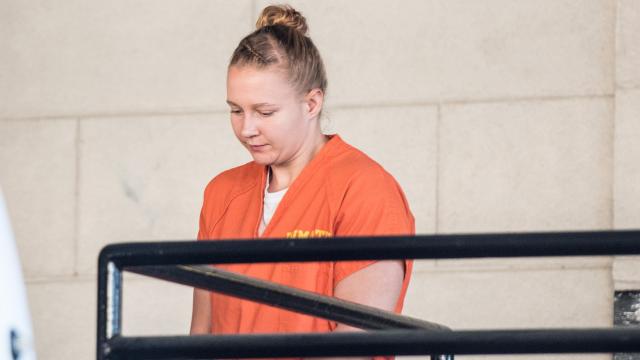In a move that will likely have a chilling effect for potential whistleblowers and journalistic sources, Reality Winner has been sentenced to 63 months in federal prison for leaking US government documents regarding Russian attempts to hack voter registration databases and election officials. Prosecutors said it was the longest sentence ever given for providing classified information to the media.
In June of last year, Ms Winner was working as a translator for an NSA contractor when she was arrested by the FBI under suspicion that she had illegally removed a classified report from her office and given it to a news outlet. Two days later, The Intercept published leaked documents that detailed Russian attempts to hack the systems of 100 local election officials and a voting software supplier.
The report indicated that foreign hackers were able to penetrate deeper into US voting systems than the public had ever known. Winner pleaded guilty to one felony count of unauthorised transmission of national defence information. On Wednesday, a federal judge imposed the sentence of five years and three months in prison that was recommended by prosecutors.
Winner’s actions came at a time when President Trump was downplaying Russian hacking efforts during the 2016 presidential elections in spite of the US intelligence community’s unanimous conclusion that there were significant Russian cyber operations that intended to help Trump’s candidacy. The intelligence community did not get into hacking attempts on American voting systems but we’ve gradually seen more information trickle out.
In addition to the report that Winner leaked, we’ve seen sources from the intelligence community come forward to say two other voting software companies were targeted by hackers. And in September of last year, the Department of Homeland Security admitted that 21 states’ voting systems were targeted by attackers who were mostly conducting “preparatory activity.”
While it’s easy to view Winner’s actions as a service to inform the American people of a threat that the government was hiding and appeared to be ignoring, prosecutors saw the leak as an act that caused “exceptionally grave damage to US national security.” The Justice Department elected to prosecute Winner under the Espionage Act, stripping her of the ability to mount a public interest defence.
In fact, prosecutors were strongly opposed to conducting a trial at all because it would put more classified information and intelligence collection methods out into the public sphere. Facing a potential sentence of 10 years in prison, Winner accepted the plea deal and the DOJ has never publicly presented evidence against her.
Robert Cattanach, a former lawyer in the Justice Department’s civil division, told the New York Times the sentence did not appear to fit the crime. “No one was endangered, no one’s identity was revealed, the Russians just learned that when they penetrate our systems, we can track them, which they already knew,” he said.
This is the first prosecution under the Espionage Act since Trump took office but the Justice Department’s attempts to stifle leakers aren’t new. The Obama administration prosecuted eight of the thirteen people charged under the Espionage Act since its inception in 1917.
Rattled by high-profile leaks from Edward Snowden and Chelsea Manning, the Obama team unleashed an unprecedented attack on whistleblowers and journalists. All of this is normalising an acceptance that prosecutors can gaol Americans for attempting to inform the public of the actions their government is engaging in.
Winner is 26 and was only a few months into her job as a translator when she was arrested. She spent from 2010 to 2016 serving in the United States Air Force. According to the Times, her plea agreement stipulates that she’ll be transferred to the Federal Bureau of Prisons’ medical centre in Carswell, Texas where she’ll be treated for bulimia.
